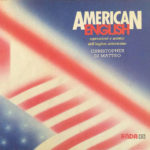Dutch Words in American English
© 2016 Chris DiMatteo. All Rights Reserved.
Here is the article read by the author:
The city of New Amsterdam was founded by Dutch settlers in the early sixteen-hundreds and even after it was taken by the English in 1664 and renamed New York, it retained much of its original Dutch character. English easily adopts foreign words and starting early on, American English got some new Dutch words.
The three most well-known of these words are names of common American foods.
Coleslaw is a salad made from finely chopped raw cabbage with dressing, served on the menus of most restaurants in America and also at home whenever barbecue is being served. It was a typical Dutch plate called “koolsla” coming from “kool” for cabbage and “sla” for salad.
Waffles are a classic American breakfast food. They are made from a batter of flour, milk and eggs cooked on a special griddle, called a waffle iron, that presses the waffles on both sides making a pattern of ridges and holes. The Dutch called this a “wafel.” It is the same word in Flemish, which is very close to Dutch, spoken right over the border in Belgium. So even Belgian Waffles, which are a larger shape, come from the same word. Since the item named Belgian Waffles actually first appeared in the US in the mid-20th century, this word has the distinction of being a double-Americanism, coined once as Waffle and again as Belgian Waffle.
Cookies are maybe the world’s favorite food. There are hundreds, even thousands of varieties of these small sweet, crunchy, tasty baked treats. In the UK they are called “biscuits” but in the US that term is only applied to a specific type of shortbread, typical of Southern style cooking. Cookie comes from the Dutch, “koekje” which means a little cake. (The J in koekje is pronounced as an I, not a hard J as in English.)
Poppycock first appears in print in America in the mid 1800s. Poppycock is acceptable in polite company for “nonsense” or “bullshit.” It is often mistaken for a British expression and though its origin is American it is also known in Britain (and anywhere else) today. Few people realize that its original meaning is quite vulgar, literally “soft dung,” from the Dutch words “pappe” for soft and “kak” for dung.
Yankee is perhaps the next most widely known of these words. Its meaning has shifted slightly over the centuries but its origin is Dutch. There is no absolute certainty about whether it comes from one or another of these stories. One story has it as an abbreviation for “Jan Kees” meaning “John Cheese” a derogatory nickname that an English colonist could call a Dutch person. Another story says the same “Jan Kees” as an abbreviation of the Dutch for a common name, “John Cornelius.” Some sources say the derogatory name was applied by the Dutch to the English. Who knows? I have found no definitive account of this that settles the question.
The pit is an American English synonym for the large oblong seed in what is called a “stone fruit” meaning a peach, plum, apricot, nectarine or others similar. Pit comes from Dutch. The pit is also known as the “stone” or by its Latin-derived scientific name, the drupe.
The verb “snoop” is at the origin of the name of Charlie Brown’s dog Snoopy, the most famous cartoon dog of all time. In Dutch, the verb “snoepen” means eating sweets secretly. In modern English, it still means to go around quietly and secretly, but instead of to look for sweets, snooping means looking a little farther than you should be looking. Or, you could say a detective might go snooping around looking for clues, or a curious beagle might go snooping around following some strange and interesting scent.
Boss is a person with authority. The Dutch word “baas” has exactly the same meaning in American since the early 1800s. Boss soon acquired the meaning of a business manager, the chief of a political party or faction, and later, a gang leader. The term Boss seems to have entered a lot of other languages as a slang term.
The Dutch built houses in New Amsterdam with stairs and a raised uncovered landing in front of the entry, which they called a “stoep.” This word became stoop in English, and is known at least to speakers in and around New York City where many buildings still have this feature. My father, who grew up in New York City, called the front porch of our house in Los Angeles the “stoop” but he was the only one I ever heard call it that, everyone else used “porch.”
A sleigh is a horse-drawn carriage on skis, which glides along the packed snow, an ideal vehicle in the snow that falls in the Winter in New York The Dutch word for it is “slee.” Everyone knows this word from the Jingle Bells song, which sings about riding “…in a one-horse open sleigh.”
Some other Dutch words are in the language but not heard as often:
Hook, from “hoek” means a point of land or a small peninsula. It is not used very much anymore but it is still in a lot of place names, for example, there is a Sandy Hook in Connecticut and in several other states and Red Hook is the name of a neighborhood in Brooklyn and also a town north of New York City on the Hudson River.
A scow is a large flat-bottomed boat, which is more commonly called a barge in English. Scow comes from the Dutch “schouw,” which means to push a boat from ashore.
A span of horses is a pair of horses, usually as close to the same color and height as possible, harnessed together to a carriage.
Bowery, from “bowuerij” meaning farm, was the name of a part of south-eastern Manhattan where there were once some farms. There is a street called The Bowery that runs through that same part of New York City today, but the farms are long gone, except for possible rooftop vegetable gardens.
[•]



